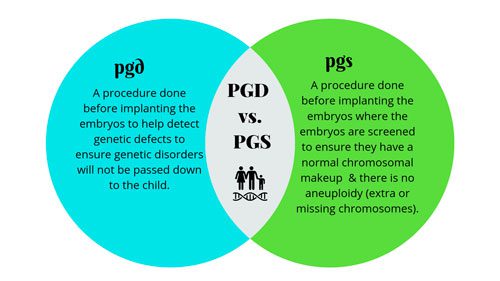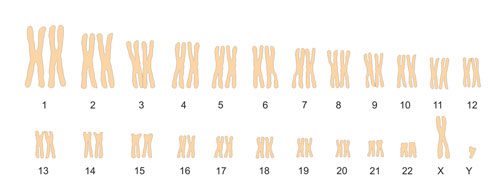
With continuous medical advancements in the field of Assisted Reproductive Techniques (ART), a recent popular question revolving around IVF is that of genetic testing of the embryo. Many couples know the tests as PGD and PGS, but few understand the finer differences between the two. Dr Fong Yang from Astra Centre for Women & Fertility shares some key points that couples should know about these tests.

What is PGD Testing and PGS Testing?
Preimplantation Genetic Diagnosis (PGD) and Preimplantation Genetic Screening (PGS) are technically the same test, where cells are extracted from the embryo for testing before implanting the embryo into the uterus during the IVF process. The main aim of both tests is to increase the chances of healthy embryo implantation to achieve a successful pregnancy.
How are PGD and PGS Different?
The key difference is that PGD detects specific genetic conditions whereas PGS is like a health screening performed on an embryo to assess the general “well-being’ or “state-of-health” of an embryo, without going into specific genetic conditions of that embryo.

- A PGD is performed when the doctor is looking out for a specific genetic disorder i.e. specific gene defects in the DNA whereas PGS is performed to scan through the complete chromosomal makeup of the embryo to detect the presence of any abnormality in the chromosomes e.g. extra or missing chromosomes.
- The genetic conditions detected by PGD therefore differs from PGS. PGD can detect single gene defect disorders that can result in diseases such as muscular dystrophy, sickle cell anaemia, cystic fibrosis and Tay-Sachs. PGS can detect chromosome disorders (much larger in size compared to genes) such as Trisomy 21, or Down syndrome, and Trisomy 18, known as Edwards syndrome.

Why are PGD and PGS Testing Performed?
PGD detects genetic disorders that could be passed on to the child while PGS ensures that the embryo has all 23 pairs of chromosomes. A healthy embryo with a normal chromosomal makeup and no genetic disorders is more likely to be successfully implanted. This reduces the risk of a miscarriage, and increases the success rate of an IVF cycle. However, it is worth mentioning that there are other factors that affect the IVF success rate as well. This means that getting a PGD/PGS test does not always guarantee the success of the IVF procedure.
Are There Risks Associated with PGD and PGS Testing?
Technological advances have made PGS and PGD safe, with hardly any risks associated. As long as you have an experienced embryologist or IVF lab, risks are minimal. The most common worry is the loss of embryos, but in this day and age, such risks are low.
Are PGD and PGS Testing Recommended?
Ideally, everyone who goes through IVF is recommended to undergo genetic testing. A lot of money and time is invested to go through IVF treatments, and having these tests will help increase your chances of a successful pregnancy. Realistically though, genetic testing is only permitted in special circumstances, for example, if there is a strong family history of hereditary conditions like muscular dystrophy or cystic fibrosis.
- PGD is recommended when there is a family history of genetic disorders. It is even more necessary if they are recessive genes.
- PGS is recommended if there is a family history of sex-linked genetic disorders. Generally, women who are older or have poor egg quality would also want to go through this. Couples who have had frequent miscarriages or have failed IVF treatments several times may also opt for this to try and find out why the aforementioned keeps happening.

Can PGD & PGS be Done in Singapore and How Much is It?
Genetic testing in Singapore is only done if there is a family history of genetic disorders. In fact, only PGD is allowed in Singapore. Furthermore, you can only get a PGD procedure done in government hospitals like SGH, NUH and KKH. If you do require PGD, the hospital will provide financial counselling to help you make the best decision possible. PGS is currently not allowed in Singapore.



